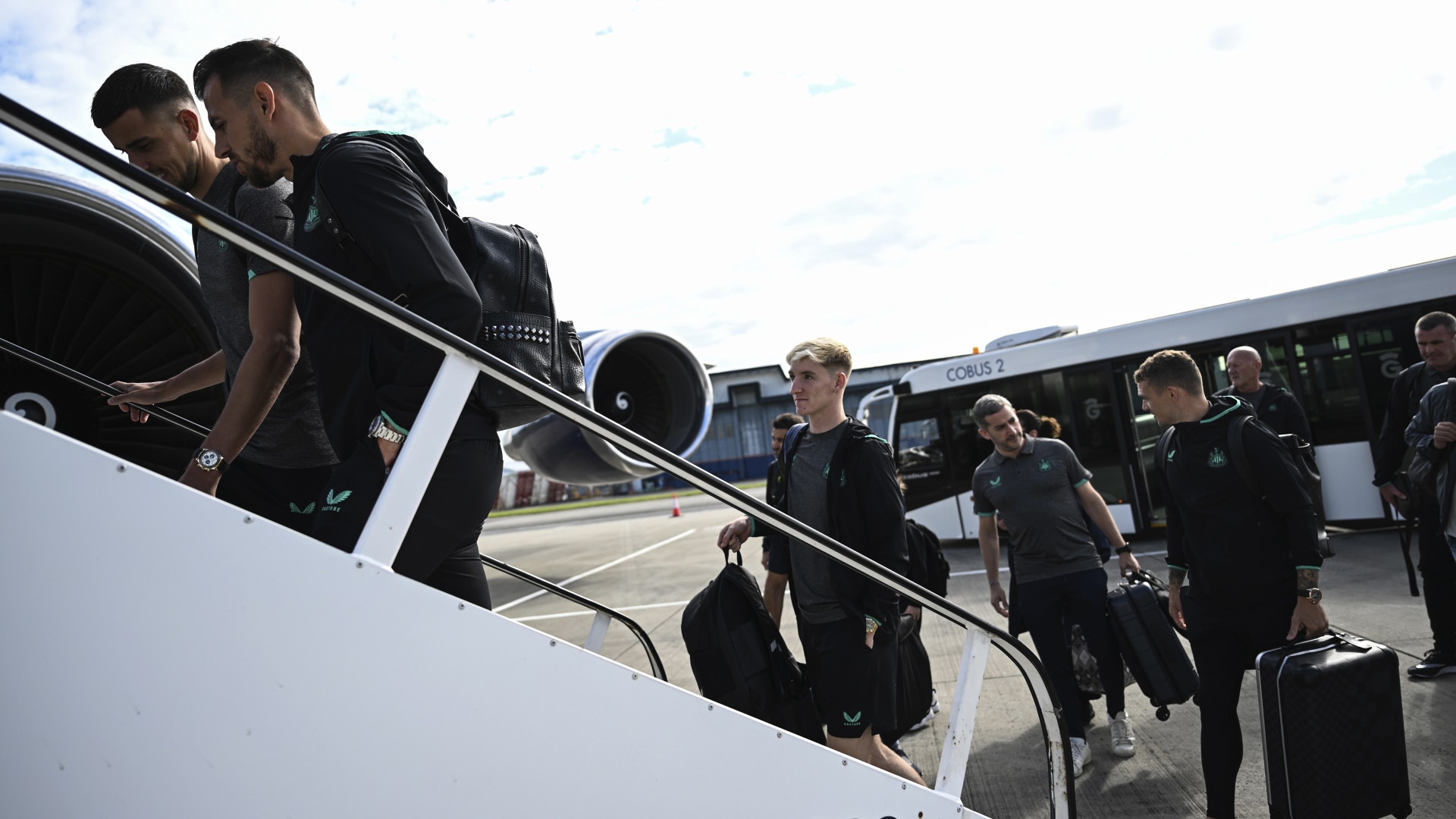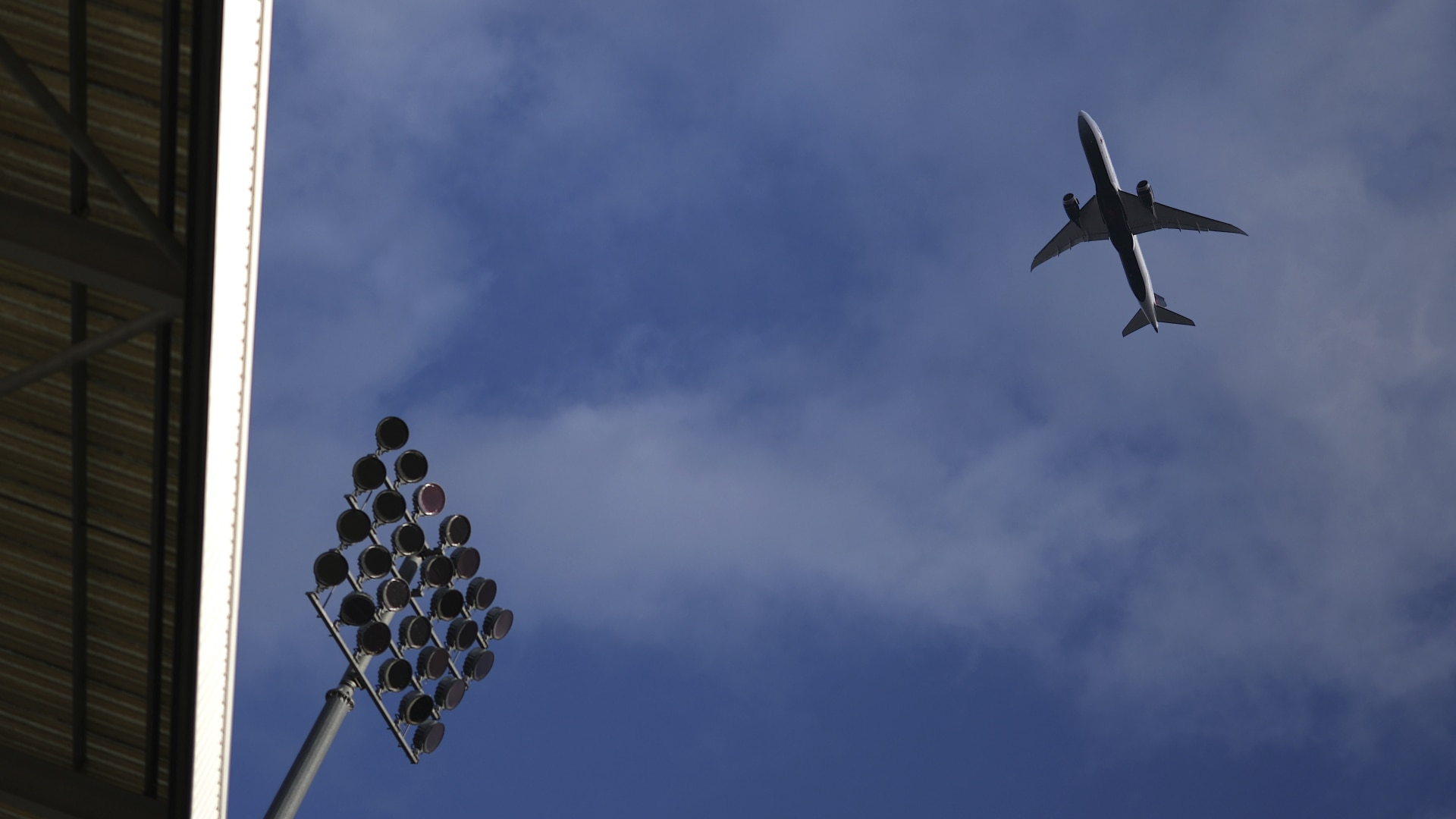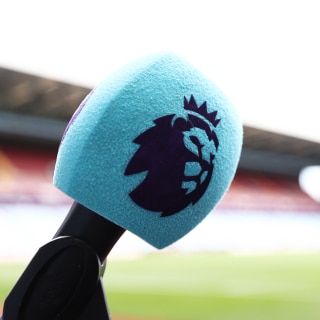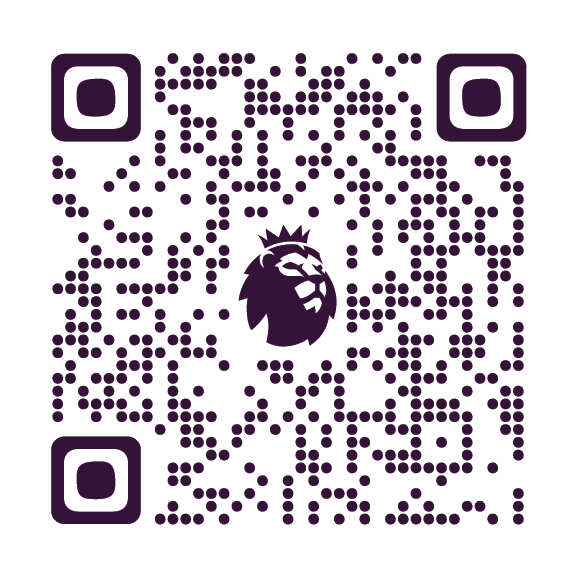Hello and welcome to the Premier Skills English podcast. This new series of Football English podcasts are based around the needs of football players and football fans and will present language you need to play the game, language you need to watch the game on TV and online and language you need to travel to the UK to see a match at a Premier League stadium.
Today, I am focusing on language that you will need if you travel to the UK to watch a match. The focus of today’s lesson is language related to travelling by plane. I’ve made two roleplays that present travelling by plane vocabulary. After each roleplay, I’ll describe the travel vocabulary and then there will be a language challenge for you to see how many of the words and phrases you have learned.
But before I get to the language of airports and travel to the UK, I want to remind you that if you are listening to this podcast on Apple podcasts or Spotify, you should also visit the page for this podcast on the new Premier League British Council partnership website at premierleague.britishcouncil.org
On the page for this podcast, you’ll be able to read the transcript. If you find it difficult to understand me, it might be easier to read what I’m saying at the same time and the entire transcript is available on the page for this podcast. You will also find some language activities to help you practice using some of the new vocabulary and then there will be a discussion task and a football phrase.
Before I start talking about the language of TV commentary, I want to quickly talk about last week’s football phrase and give you one more chance to guess. Last week, I selected a phrase from some commentary that I’d heard. The phrase was ** *** *** ****. This describes a goal that rebounds off the upright and into the net.
Congratulations to Miraya from Peru for getting the phrase right last week. The answer was in off the post. Keep listening till the end of the podcast for a new football phrase.
If you’re a Premier League fan and you want to travel to the UK to watch a match, you will probably need to get on a plane. Airports are quite challenging for people learning English because there’s quite a lot of special airport language. So today, I’ve got two roleplays for you to listen to to present some useful vocabulary. In the first roleplay, I want you to listen out for the following:
- To check in
To check a bag
Carry on / Cabin bag
Luggage tag
Desk
Boarding pass
Roleplay 1
Jed: I swear, this airport is bigger than my whole town. How do people know where they’re going?
Marco: [noticing him] First time flying?
Jed: Er ... yeah. I’ve taken a train before, but this… this is something else. Everything’s written in English, the screens keep changing, and I have no idea where I’m supposed to be.
Marco: Don’t worry, I’ve been through this a hundred times. Where are you headed?
Jed: Manchester ... Actually, Manchester City. I have tickets for a match. I’ve been a fan for years, but I’ve never had the time to travel to Manchester to watch a match. But first, I have to check in, but I don’t know what that means. I think I checked in on my phone, then I need to find a gate, and then there’s security. It feels like an obstacle course.
Marco: It’s not as bad as it looks. Let’s go step by step. Have you checked in yet?
Jed: I think so? I did something online, and they sent me this… boarding pass, but I don’t know if I need to go to one of those desks over there.
Marco: If you already have your boarding pass, that means you’ve checked in online. You will have had to fill out a form and maybe select a seat.
Jed: Ah ... so that was checking in. Why do they call it checking in?
Marco: In the past, you had to go to one of those desks. You see where the people are queuing with their bags.
Jed: Yes.
Marco: You used to have to show them your ticket and your passport and they would print out a boarding pass which was like a ticket with your name and seat number. But these days, you can check in online and you get a boarding pass on your phone.
Jed: So I don’t need to go to those desks?
Marco: That depends on your bags. If you want to check your bags, you still need to go to the desk.
Jed: I think my bag is OK. Why do I need to check my bag?
Marco: Ah - no. Small bags are called carry-ons because you can carry them on the plane. I think they’re normally called cabin bags in the UK. But for a big bag, like yours, you can’t take it to your seat, you have to check it. That means you give it to the people who work for the airline company at the desk and they will arrange for it to be put in the hold on the plane.
Jed: OK. Yeah ... I think I need to check my bag. It’s quite big.
Marco: Yes. You’re definitely going to have to check that in. Who are you flying with?
Jed: Premier Flights.
Marco: You can see on the screen there. For Premier Flights to Manchester, you need to go to desk 21.
Jed: I see. Yes, all the desks have numbers.
Marco: That’s right. So just go and queue up at desk 21 and when you get to the front of the queue, the person on the desk will ask to see your passport and then you need to put your bag on the little conveyor belt and they will put a luggage tag on your bag and send it to the plane.
Jed: And it just magically appears in Manchester?
Marco: Well, that’s the idea.
Language focus 1
The language from the roleplay that I wanted you to listen out for was:
- To check in
- To check a bag
- Carry on / Cabin bag
- Luggage tag
- Desk
- Boarding pass
I’m going to go through each of these items. I’ll explain the meaning and give you a couple of example sentences.
To check in
To check in means to register yourself and confirm your place on a flight, usually by showing your ID and flight details. This can be done online or at the airport.
Examples:
- I checked in online last night and got my boarding pass on my phone.
- You need to check in at least two hours before an international flight.
To check a bag
To check a bag means to hand over your large luggage at the check-in desk so it can be placed in the plane’s cargo hold. You won’t carry it on board.
Examples:
- I checked my suitcase because it was too big for the cabin.
- You can check a bag up to 23kg with most airlines.
Carry-on / Cabin bag
A carry-on or cabin bag is a small suitcase or bag you are allowed to take into the plane cabin with you. The cabin is the part of the plane with all the seats; it’s where people sit on a plane. These small bags are also called hand luggage. Cabin bags or carry-on bags have to fit in the overhead locker or under the seat in front of your seat, by your feet.
Examples:
- My cabin bag has my passport, phone, and snacks.
- The airline allows one carry-on and one small handbag or laptop bag.
Luggage tag
A luggage tag is a label attached to your suitcase. These are long paper and plastic tags that have sticky bits so that they can be looped through your bag handle and stuck together.; Luggage tags show your flight details and destination, so the airline knows where to send your bag. We also use the phrase luggage tag to describe small tags that you might put on your bag with your name and address in case your bag gets lost.
Examples:
- The staff put a luggage tag on my suitcase when I checked it in.
- Make sure your luggage tag is correct before your bag goes on the conveyor belt.
Desk
In an airport, a desk refers to a counter or area where staff help with check-in, baggage, or flight information.
Examples:
- I went to the check-in desk to get my boarding pass.
- If you miss your flight, go to the airline’s help desk.
Boarding pass
A boarding pass is the special ticket you need to board or get on your flight. It’s not the ticket you buy from the travel agents, but a special ticket that you get when you check in. Your boarding pass shows your seat number, boarding gate, and flight time. It often shows your boarding time as well.
Examples:
- I showed my boarding pass at security and at the gate.
- You can print your boarding pass or keep it on your phone.
Now, it’s time for the second roleplay. In this roleplay, I want you to listen out for the following:
- Security
- X-ray machine
- Tray
- Full body scanner
- Departure board
- Gate
Roleplay 2
Marco: Hello again. I see you managed to check your bag.
Jed: Yes. There was a very nice woman who helped me. So this is security. It’s a long queue. Why are people taking their shoes off—what’s that all about?
Marco: That’s normal. At security, you have to put your bag, jacket, and any metal items in a tray. Sometimes, they ask you to remove your shoes and belt, especially if they have metal parts.
Jed: I don’t like the idea of standing there half-dressed.
Marco: Don’t worry, everyone else is doing the same. Just put your phone, watch, coins—anything metal—in the tray. Oh, and liquids! They have to be in small bottles, under 100ml, inside a plastic bag. There are some bags there if you need one.
Jed: No. I don’t have any liquids. What is that big machine?
Marco: That’s an X-ray machine. Every bag is x-rayed before it can go on the plane.
Jed: Hmmm. It’s a good job there’s nothing embarrassing in my bag then!
Marco: Yes ... erm.
Jed: Is that an x-ray for people as well?
Marco: Yes ... I mean. Well, I’m not sure. It’s a bit like an x-ray machine but it’s not radioactive. It’s called a full body scanner. There’s also a gate that’s just a metal detector.
Jed: Can the machine see through my clothes?
Marco: Yeah ... sort of, I think.
Jed: I don’t think I like that.
Marco: I don’t think it’s very clear. It can just tell if you have something hidden.
Jed: Hmmm. Which one should I go through?
Marco: Just do what the people tell you. They are both fine.
Jed: All this security seems like a lot. But I suppose it’s better to be safe than sorry.
Marco: Yeah, you can usually get through pretty quickly. After security, grab your things, put your shoes back on, and head to the waiting lounge.
Jed: OK ... Is that where I get on the plane?
Marco: No. Can you see the screen through there?
Jed: Yes, not very well, I can’t read it from here.
Marco: That’s the departure board. When you’re through security, go and look at the screen. It has information about all the flights. Next to each of the flights, it will tell you which gate you’ve got to go to?
Jed: I remember reading about gates.
Marco: The gates are where you have to get on the plane. They are just doors really. There are corridors from the waiting lounge to the different gates. There’s another waiting area next to the gate.
Jed: There’s a lot of waiting.
Marco: Yes. Normally, the gates for each flight are only announced about 15 minutes before boarding so you need to listen out for the announcement and keep an eye on the departure board.
Jed: OK. It’s quite complicated, but I feel better now, thanks.
Language focus 2
The language from the roleplay that I wanted you to listen out for was:
- Security
- X-ray machine
- Tray
- Full body scanner
- Departure board
- Gate
I’m going to go through each of these items. I’ll explain the meaning and give you a couple of example sentences.
Security
This is the area in the airport where passengers are checked for dangerous or banned items before they are allowed to get on the plane.
Examples:
- I had to remove my belt and shoes at security.
- Security checks your bags and your body before you can fly.
X-ray machine
An x-ray machine has a camera that uses X-rays that go through the outsides of a bag and can show the security people what’s inside. These are used at airport security to scan the contents of your bags. You have to put your bags on a moving belt, a bit like the ones at the checkout in a supermarket.
Examples:
- My carry-on went through the X-ray machine.
- They stopped my tray because the X-ray machine showed a bottle of water.
Tray
When you go through security, you have to put all your metal items like your wallet and keys and your electrical items like your phone or laptop in a flat plastic container called a tray. This tray is then put through the x-ray machine.
Examples:
- I put my phone and keys in the tray at security.
- The officer told me to take my laptop out and place it in a separate tray.
Full body scanner
This is a machine that’s a bit like an x-ray machine but it’s used for people. They have these at airport security and you have to stand inside the machine while it scans your whole body to check for hidden items. You have to stand still with your arms raised for a few seconds.
Examples:
- I walked through the full body scanner with my arms up.
- Some airports use full body scanners instead of metal detectors.
Departure board
The departure board used to be a big board with mechanical letters that would show information about the flights that are ready to depart or leave. They have big departure boards in the main stations in London. These days, the departure boards are big screens that show flight information, including times, destinations, delays, and gate numbers. They are spread throughout the airport so you can keep an eye on your flight to see when the information changes.
Examples:
- I checked the departure board to find my gate.
- The departure board said that my flight was delayed by 30 minutes.
Gate
This is the area at the airport where passengers wait to board their flight. Each flight has a gate number, which is shown on your boarding pass and the departure board.
Examples:
- My boarding pass says Gate B22.
- They changed the gate at the last minute and I had to run!
Language Challenge
Now it’s time for you to think about the language from this podcast again. I’ve got 12 sentences with gaps that you need to fill with the vocabulary that I have focused on in this podcast. I will put an interactive activity on the page for this podcast that you can use to find out if you can get the right answers.
- I stood still in the __________ with my arms raised.
- The woman at the check-in __________ helped me find my gate.
- I had to put my phone and laptop into a ________ at security.
- I had to _______ my suitcase because it was too big and heavy to take into the cabin.
- The __________ showed my flight was delayed by one hour.
- We waited at the __________ until our group was called to board.
- These days, you can usually __________ online 48 hours before your flight.
- If possible, I prefer to travel with only a _________ bag. That way, I don’t have to wait for my bag at the airport.
- It was really hard to get the __________ off my bag. The glue was really strong.
- My bag went through the __________, and they found a bottle of shampoo.
- Don’t lose your __________ – you need it to get on the plane!
- After checking in, I went through __________ where they x-rayed my bags.
Football phrase
OK, it’s time for the football phrase. If you’re new to the podcast, every week I set you a challenge. I explain a football phrase or word and you have to guess what it is.
When you know the answer, go to the podcast page on the Premier League British Council website and write the word or phrase in the comments. If you’re correct I’ll announce your name on next week’s podcast. This week’s football phrase is another short word, The word is ***. This describes a cheeky move in football that is generally known by a longer word and derives from a slang term that used to mean to trick someone or make someone look like a fool. In football, quite simply, it means to put the ball through the legs of an opponent. I have chosen this phrase because this shortened version has quite recently, I think, become the most common way to describe this act.
If you can work it out, leave the answer in a comment on the page for this podcast on the Premier League British Council website.
Task
Before I finish, I want to ask you for your help for next week’s podcast. Next week, I’m going to make a podcast for players and the focus will be on talking tactics and the language of match reports. So for next week’s podcast, I want to know if there are any words or phrases from match reports that you have problems understanding. If there are any words or phrases that you would like me to try to explain, please leave me a comment on the page of this podcast on the Premier League British Council website. You’ll also be able to find the details of the Premier Skills English WhatsApp account so you can also leave me a message or even voice message and I will include it in next week’s podcast.
And that’s all I have time for today. Before I finish, I just wanted to say that I hope you found this podcast useful, and I hope everyone stays fit and healthy and safe.
Bye for now and enjoy your football.













hey there, i think this week's word may be nut!